Filter by
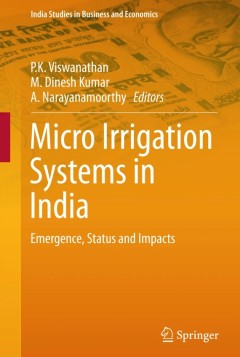
Micro Irrigation Systems in India
This book takes stock of micro irrigation systems (MIS), the technological intervention in India’s agricultural and water management sectors, over the past couple of decades. Based on empirical research from the major agriculturally dynamic states, viz., Gujarat, Rajasthan, Maharashtra, Tamil Nadu, Andhra Pradesh and Karnataka, the book provides a nuanced understanding and objective assessmen…
- Edition
- -
- ISBN/ISSN
- 978-981-10-0346-2
- Collation
- XIV, 178
- Series Title
- India Studies in Business and Economics
- Call Number
- -
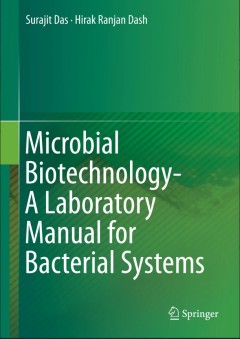
Microbial Biotechnology- A Laboratory Manual for Bacterial Systems
Microorganisms play an important role in the maintenance of the ecosystem structure and function. Bacteria constitute the major part of the microorganisms and possess tremendous potential in many important applications from environmental clean up to the drug discovery. Much advancement has been taken place in the field of research on bacterial systems. This book summarizes the experimental setu…
- Edition
- 1
- ISBN/ISSN
- 978-81-322-2094-7
- Collation
- XVI, 239
- Series Title
- -
- Call Number
- -
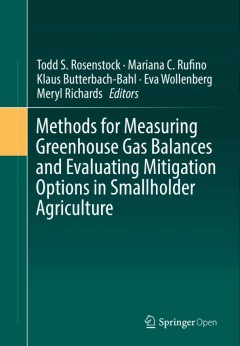
Methods for Measuring Greenhouse Gas Balances and Evaluating Mitigation Optio…
This book provides standards and guidelines for quantifying greenhouse gas emissions and removals in smallholder agricultural systems and comparing options for climate change mitigation based on emission reductions and livelihood trade-offs. Globally, agriculture is directly responsible for about 11% of annual greenhouse gas (GHG) emissions and induces an additional 17% through land use c…
- Edition
- 1
- ISBN/ISSN
- 978-3-319-29792-7
- Collation
- xv, 203
- Series Title
- -
- Call Number
- -

Microbial Degradation of Synthetic Dyes in Wastewaters
Today synthetic dyes are used extensively in the textile dyeing, paper printing, color photography, pharmaceuticals, food and drink, cosmetic and leather industries. As of now, over 100,000 different dyes are available, with an annual production of over 700,000 metric tons. These industries discharge an enormous amount of colored effluents into natural water bodies, with or without treatment. T…
- Edition
- 1
- ISBN/ISSN
- 978-3-319-10941-1
- Collation
- XIV, 367
- Series Title
- Environmental Science and Engineering
- Call Number
- -

Microbial Biotechnology- A Laboratory Manual for Bacterial Systems
Microorganisms play an important role in the maintenance of the ecosystem structure and function. Bacteria constitute the major part of the microorganisms and possess tremendous potential in many important applications from environmental clean up to the drug discovery. Much advancement has been taken place in the field of research on bacterial systems. This book summarizes the experimental setu…
- Edition
- 1
- ISBN/ISSN
- 978-81-322-2094-7
- Collation
- XVI, 239
- Series Title
- -
- Call Number
- -
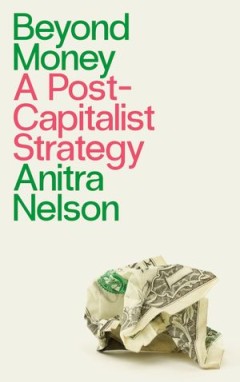
Beyond Money : A Postcapitalist Strategy
A fascinating portal into arguments about why we need to get beyond money' - Harry Cleaver What would a world without money look like? This book is a lively thought experiment that deepens our understanding of how money is the driver of political power, environmental destruction and social inequality today, arguing that it has to be abolished rather than repurposed to achieve a postcapitalis…
- Edition
- -
- ISBN/ISSN
- 9781786807809
- Collation
- -
- Series Title
- -
- Call Number
- -
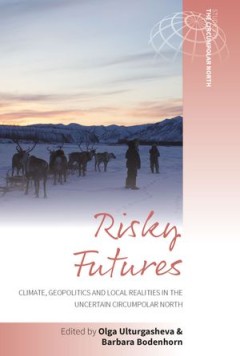
Risky Futures : Climate, Geopolitics and Local Realities in the Uncertain Cir…
The volume examines complex intersections of environmental conditions, geopolitical tensions and local innovative reactions characterising ‘the Arctic’ in the early twenty-first century. What happens in the region (such as permafrost thaw or methane release) not only sweeps rapidly through local ecosystems but also has profound global implications. Bringing together a unique combination of …
- Edition
- -
- ISBN/ISSN
- 9781805390640
- Collation
- -
- Series Title
- -
- Call Number
- -
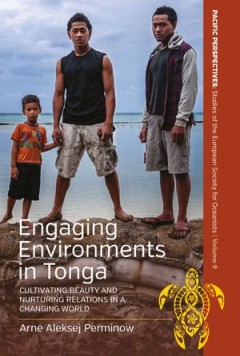
Engaging Environments in Tonga : Cultivating Beauty and Nurturing Relations i…
On March 11, 2011, a tsunami warning was issued for Tonga in Polynesia. On the low and small island of Kotu, people were unperturbed in the face of impending catastrophe. The book starts out from the puzzle of peoples’ responses and reactions to this warning as well as their attitudes to a gradual rise of sea level and questions why people seemed so unconcerned about this and the accompanying…
- Edition
- -
- ISBN/ISSN
- 9781805390657
- Collation
- -
- Series Title
- -
- Call Number
- -
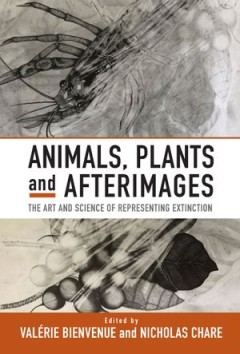
Animals, Plants and Afterimages : The Art and Science of Representing Extinction
The sixth mass extinction or Anthropocene extinction is one of the most pervasive issues of our time. Animals, Plants and Afterimages brings together leading scholars in the humanities and life sciences to explore how extinct species are represented in art and visual culture, with a special emphasis on museums. Engaging with celebrated cases of vanished species such as the quagga and the thylac…
- Edition
- -
- ISBN/ISSN
- 9781805390671
- Collation
- -
- Series Title
- -
- Call Number
- -
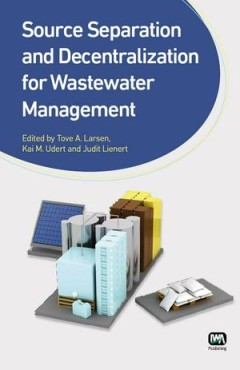
Source Separation and Decentralization for Wastewater Management
Source Separation and Decentralization for Wastewater Management sets up a comprehensive view of the resources involved in urban water management. It explores the potential of source separation and decentralization to provide viable alternatives to sewer-based urban water management. The book presents a comprehensive view of the state of the art of source separation and decentralization. It dis…
- Edition
- -
- ISBN/ISSN
- 9781843393481
- Collation
- -
- Series Title
- -
- Call Number
- -
 Computer Science, Information & General Works
Computer Science, Information & General Works  Philosophy & Psychology
Philosophy & Psychology  Religion
Religion  Social Sciences
Social Sciences  Language
Language  Pure Science
Pure Science  Applied Sciences
Applied Sciences  Art & Recreation
Art & Recreation  Literature
Literature  History & Geography
History & Geography